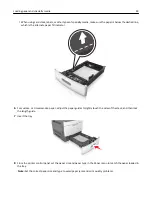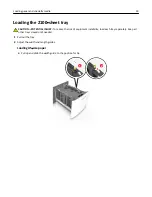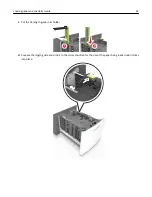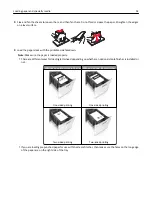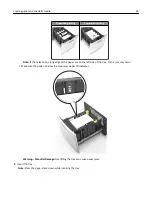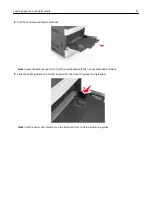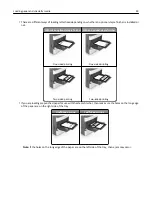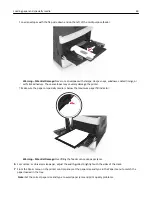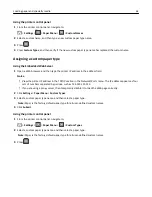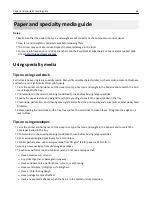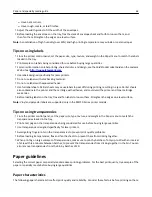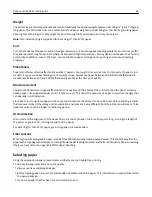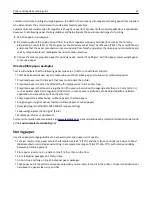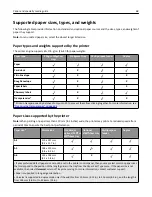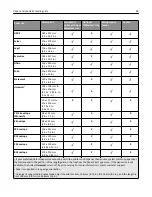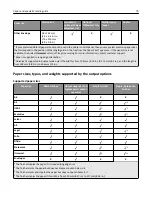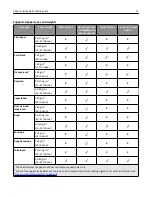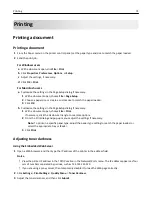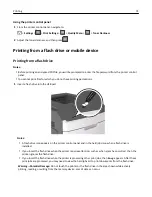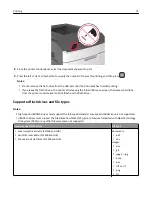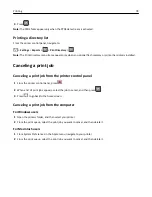
Paper and specialty media guide
Notes:
•
Make sure that the paper size, type, and weight are set correctly on the computer or control panel.
•
Flex, fan, and straighten specialty media before loading them.
•
The printer may print at a reduced speed to prevent damage to the fuser.
•
For more information on card stock and labels, see the
Card Stock & Label Guide
on the Lexmark support Web
site at
http://support.lexmark.com
.
Using specialty media
Tips on using card stock
Card stock is heavy, single
‑
ply specialty media. Many of its variable characteristics, such as moisture content, thickness,
and texture, can significantly affect print quality.
•
From the printer control panel, set the paper size, type, texture, and weight in the Paper menu to match the card
stock loaded in the tray.
•
Print samples on the card stock being considered for use before buying large quantities.
•
Specify the paper texture and weight from the tray settings to match the paper loaded in the tray.
•
Preprinting, perforation, and creasing may significantly affect the print quality and cause jams or other paper feed
problems.
•
Before loading the card stock on the tray, flex and fan the card stock to loosen them. Straighten the edges on a
level surface.
Tips on using envelopes
•
From the printer control panel, set the paper size, type, texture, and weight in the Paper menu to match the
envelopes loaded in the tray.
•
Print samples on the envelopes being considered for use before buying large quantities.
•
Use envelopes designed specifically for laser printers.
•
For best performance, use envelopes made from 90
‑
g/m
2
(24
‑
lb) paper or 25% cotton.
•
Use only new envelopes from undamaged packages.
•
To optimize performance and minimize jams, do not use envelopes that:
–
Have excessive curl or twist.
–
Are stuck together or damaged in any way.
–
Have windows, holes, perforations, cutouts, or embossing.
–
Have metal clasps, string ties, or folding bars.
–
Have an interlocking design.
–
Have postage stamps attached.
–
Have any exposed adhesive when the flap is in the sealed or closed position.
Paper and specialty media guide
63

